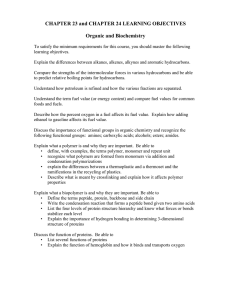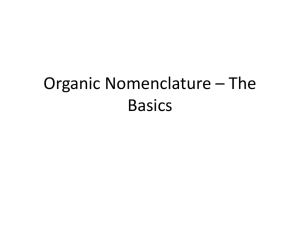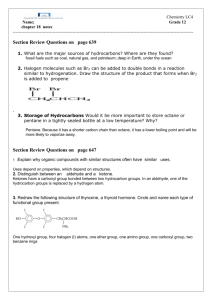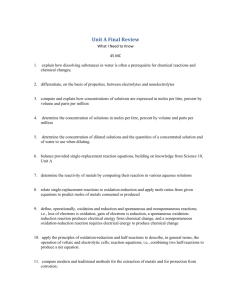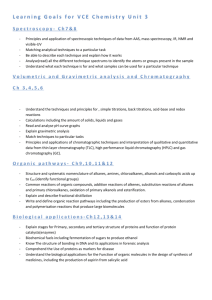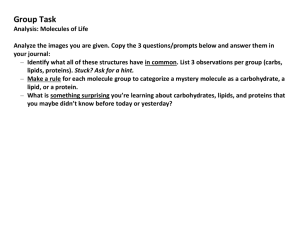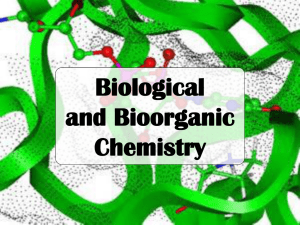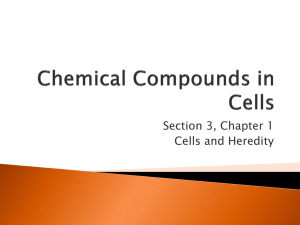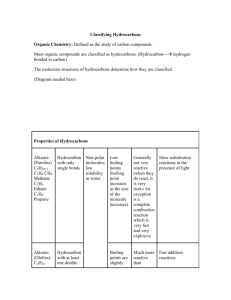Organic Outline
advertisement
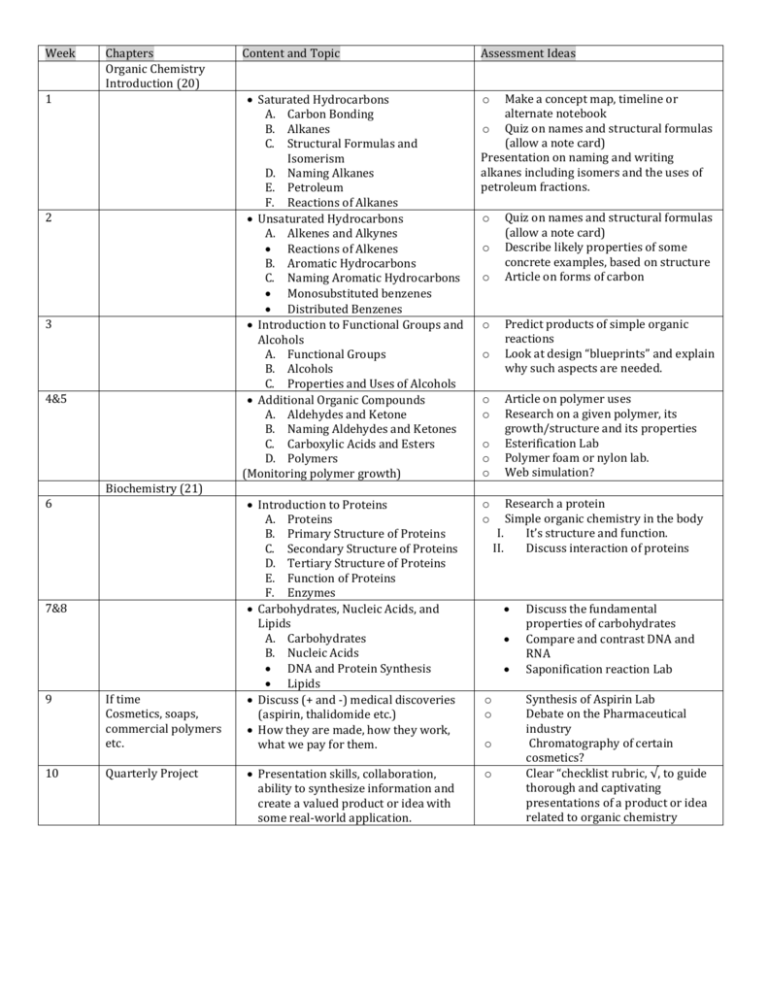
Week Chapters Organic Chemistry Introduction (20) 1 2 3 4&5 Content and Topic Assessment Ideas Saturated Hydrocarbons A. Carbon Bonding B. Alkanes C. Structural Formulas and Isomerism D. Naming Alkanes E. Petroleum F. Reactions of Alkanes Unsaturated Hydrocarbons A. Alkenes and Alkynes Reactions of Alkenes B. Aromatic Hydrocarbons C. Naming Aromatic Hydrocarbons Monosubstituted benzenes Distributed Benzenes Introduction to Functional Groups and Alcohols A. Functional Groups B. Alcohols C. Properties and Uses of Alcohols Additional Organic Compounds A. Aldehydes and Ketone B. Naming Aldehydes and Ketones C. Carboxylic Acids and Esters D. Polymers (Monitoring polymer growth) Make a concept map, timeline or alternate notebook o Quiz on names and structural formulas (allow a note card) Presentation on naming and writing alkanes including isomers and the uses of petroleum fractions. o o o o o o o o o o o Quiz on names and structural formulas (allow a note card) Describe likely properties of some concrete examples, based on structure Article on forms of carbon Predict products of simple organic reactions Look at design “blueprints” and explain why such aspects are needed. Article on polymer uses Research on a given polymer, its growth/structure and its properties Esterification Lab Polymer foam or nylon lab. Web simulation? Biochemistry (21) 6 7&8 9 10 If time Cosmetics, soaps, commercial polymers etc. Quarterly Project Introduction to Proteins A. Proteins B. Primary Structure of Proteins C. Secondary Structure of Proteins D. Tertiary Structure of Proteins E. Function of Proteins F. Enzymes Carbohydrates, Nucleic Acids, and Lipids A. Carbohydrates B. Nucleic Acids DNA and Protein Synthesis Lipids Discuss (+ and -) medical discoveries (aspirin, thalidomide etc.) How they are made, how they work, what we pay for them. o o Presentation skills, collaboration, ability to synthesize information and create a valued product or idea with some real-world application. o Research a protein Simple organic chemistry in the body I. It’s structure and function. II. Discuss interaction of proteins o o o Discuss the fundamental properties of carbohydrates Compare and contrast DNA and RNA Saponification reaction Lab Synthesis of Aspirin Lab Debate on the Pharmaceutical industry Chromatography of certain cosmetics? Clear “checklist rubric, √, to guide thorough and captivating presentations of a product or idea related to organic chemistry
